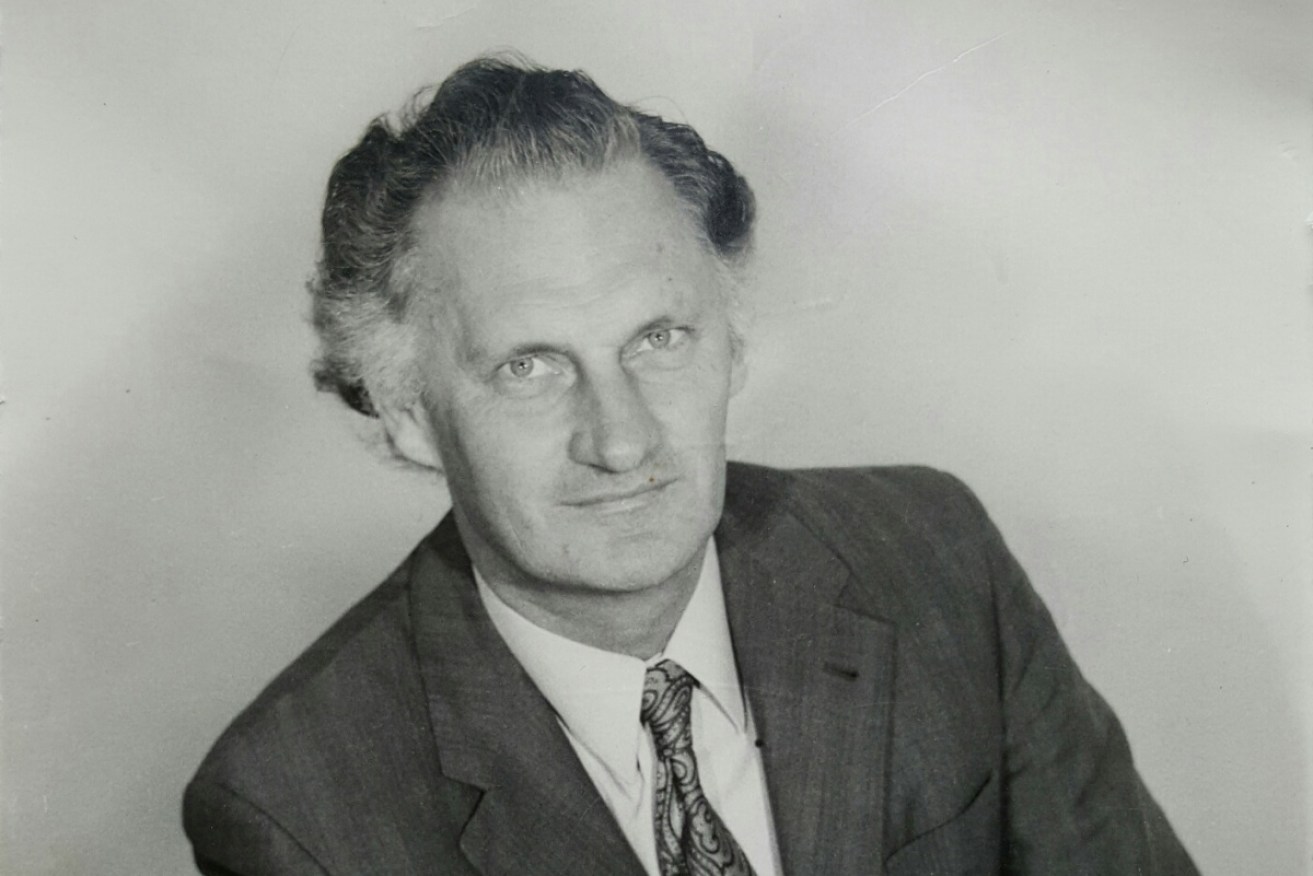What made John Siddons one of Australia’s most unusual and enigmatic politicans


John Siddons was an unusual politician. Photo: Supplied
The sun has set on one of Australian politics’ most unusual and enigmatic characters, with the passing of former Democrat Senator John Siddons.
Siddons was an industrialist whose family owned Sidchrome tools (‘you canna hand a man a grander spanner,’ as the advertising ditty went) and Australian rights to the Ramset fixing tools operation.
He was also a passionate and courageous advocate for outlying and progressive ideas and things that for their times were just plain unfashionable. I knew John well and admired his qualities as I served as his Parliamentary research assistant in the mid 1980s.
Always unhappy with mainstream politics, John was attracted to small parties where he felt his unconventional ideas could gain traction.

John Siddons with a Solarstream unit.
He first flirted with politics by joining the Australia Party, started by the maverick business figure Gordon Barton, in the early 1970s.
Then, angered by a Whitlam government double whammy of a unilateral tariff cut and currency revaluation that left Australian industry 40 per cent worse off, he formed the Australian Democrats with Liberal rebel Don Chipp in 1977.
As I wrote in The Age some years ago, John Siddons habitually lived as a man apart.
He was an economic nationalist in the day of the economic rationalist; a businessman from a conservative background aligning himself with the disparate collection of idealists, activists and ratbags that made up Australian third-force politics; a multinational industrialist happy to publicly attack finance capital and its handmaidens.
Not only was John a passionate advocate, what I liked about him was that he put his money where his mouth was. Worker participation was one of his major policy planks and he implemented it in his own factories.

Sidchrome tools were a Siddons family creation.
Australian manufacturing was his driving passion and he kept his money and energies in his manufacturing operations long after many of his business contemporaries had sold out or closed down their factories.
In his later years, with his sons, he formed Siddons Solarstream that designs and manufacturers solar powerd hydronic heating. Some components are Australian made.
He called for government intervention in the economy though industry policy at a time when deregulation was policy king.
He was a man of impressive stature and personal power and on the floor of the Senate ‘Big John’ could be hard to ignore.
He once told the famously tough then Labor Finance Minister Peter Walsh “if you were any drier you’d spontaneously combust”.

Peter Walsh risked self-immolation. Photo: AAP
Deregulation, he believed, had “paved the way for a new breed of cowboy speculator to reap massive profits at the expense of the Australian economy”.
The contradictions of his life extracted a personal toll. “No doubt, I was the odd person out in my social circle. I was treated with respect but looked upon as unusual.” he once told me.
Politics was not a natural fit for him either. The Democrats were an amalgam of sometimes incompatible interest groups.
The Democrats were disparate
There were ‘small L’ liberals who had followed Don Chipp out of the Liberal Party following the dismissal of the Whitlam government. There were environmentalists who had fought the Franklin Dam battle.
There were anti-nuclear and peace activists, supporters of radical tax policies and iconoclastic Senators who worked off their loyal state support bases. The whole unstable mass was held together by the charismatic magic of Don Chipp, but John had few natural allies in it.

Don Chipp’s magic kept the party together. Photo: AAP
“I felt a bit lonely both in the Democrats and in business circles,” he said.
It sounds like a cliche, but John was very much a man of the people. He was popular with the Parliamentary attendants and not a few of them sported impressive sets of Sidchrome tools in their car boots.
John served two terms as a senator, then took off into the wilderness, forming a new party after losing a leadership race to Janine Haines after Don Chipp’s retirement. He was not re-elected.
What motivated his political career? “I had delusions of trying to save manufacturing in this country and getting better government.”
Unachieved ideals can perhaps appear delusional at times. But those that try improve the world for all of us.








